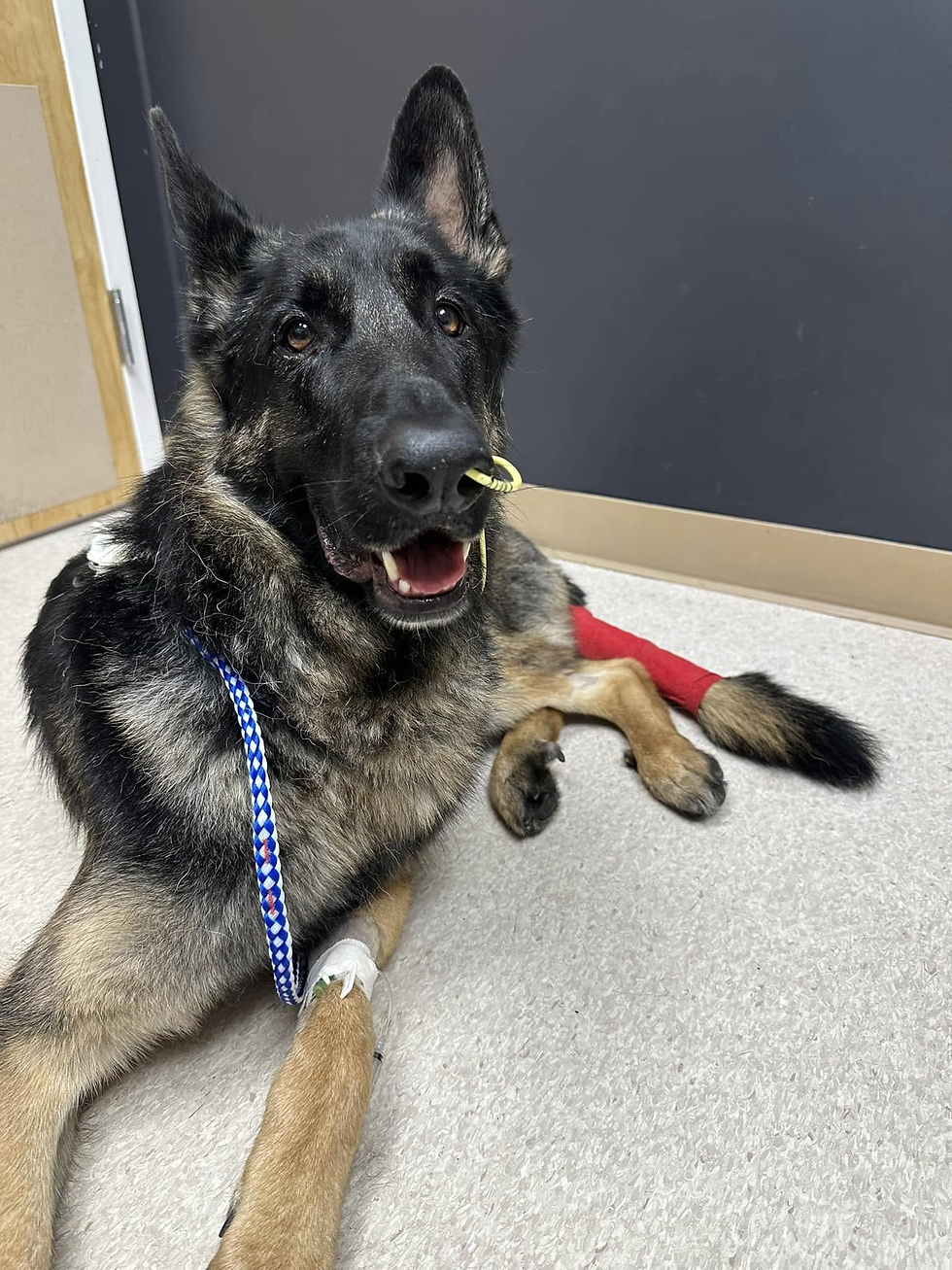What is Bloat in Dogs and How to Prevent It?
- Waggy Butts & Happy Mutts

- Mar 12, 2025
- 2 min read

What is Bloat (Gastric Dilatation-Volvulus, GDV)?
Bloat, also known as Gastric Dilatation-Volvulus (GDV), is a life-threatening condition that occurs when a dog's stomach fills with gas, food, or fluid and then twists. This twisting cuts off blood flow, leading to shock and potential death if not treated immediately.
Signs & Symptoms of Bloat
Distended or swollen belly
Attempting to vomit but producing nothing
Excessive drooling
Restlessness and pacing
Rapid heartbeat
Weakness or collapse
Difficulty breathing
If you suspect bloat, seek emergency veterinary care immediately.
Causes & Risk Factors
Bloat can happen to any dog, but certain factors increase the risk:
Large and Deep-Chested Breeds – Great Danes, German Shepherds, Dobermans, and similar breeds are more susceptible.
Eating Too Fast – Swallowing large amounts of air while eating can contribute to stomach expansion.
Exercising After Eating – Strenuous activity right after meals can increase the likelihood of stomach twisting.
Drinking Excessive Water Quickly – Large amounts of water in a short time may contribute to bloat.
Feeding Once a Day – Dogs fed one large meal per day are at a higher risk.
Stress or Anxiety – Nervous or high-strung dogs may be more prone to bloat.
How to Prevent Bloat
While there is no guaranteed way to prevent bloat, these steps can significantly reduce the risk:
Feed Multiple Smaller Meals – Divide daily food intake into 2-3 smaller meals instead of one large meal.
Use Slow Feeder Bowls – These help slow down eating and reduce air intake.
Limit Exercise Around Mealtime – Avoid strenuous activity at least 1 hour before and after meals.
Provide Fresh Water, But in Moderation – Ensure your dog has access to water but discourage gulping large amounts at once.
Avoid Elevated Food Bowls – While once believed to help, raised food bowls may actually increase the risk of bloat.
Consider Preventive Surgery (Gastropexy) – High-risk breeds may benefit from a surgical procedure that helps prevent stomach twisting.
Emergency Response to Bloat
If you notice signs of bloat:
Do NOT wait – Bloat progresses rapidly and is fatal without immediate intervention.
Take your dog to the vet or an emergency animal hospital immediately.
Do not try to induce vomiting – This can worsen the situation.
Call ahead to let the veterinary staff know you're coming.
Bloat is a medical emergency, but with awareness and preventive measures, the risk can be minimized. If your dog is a high-risk breed, discuss prevention strategies with your veterinarian.





Comments